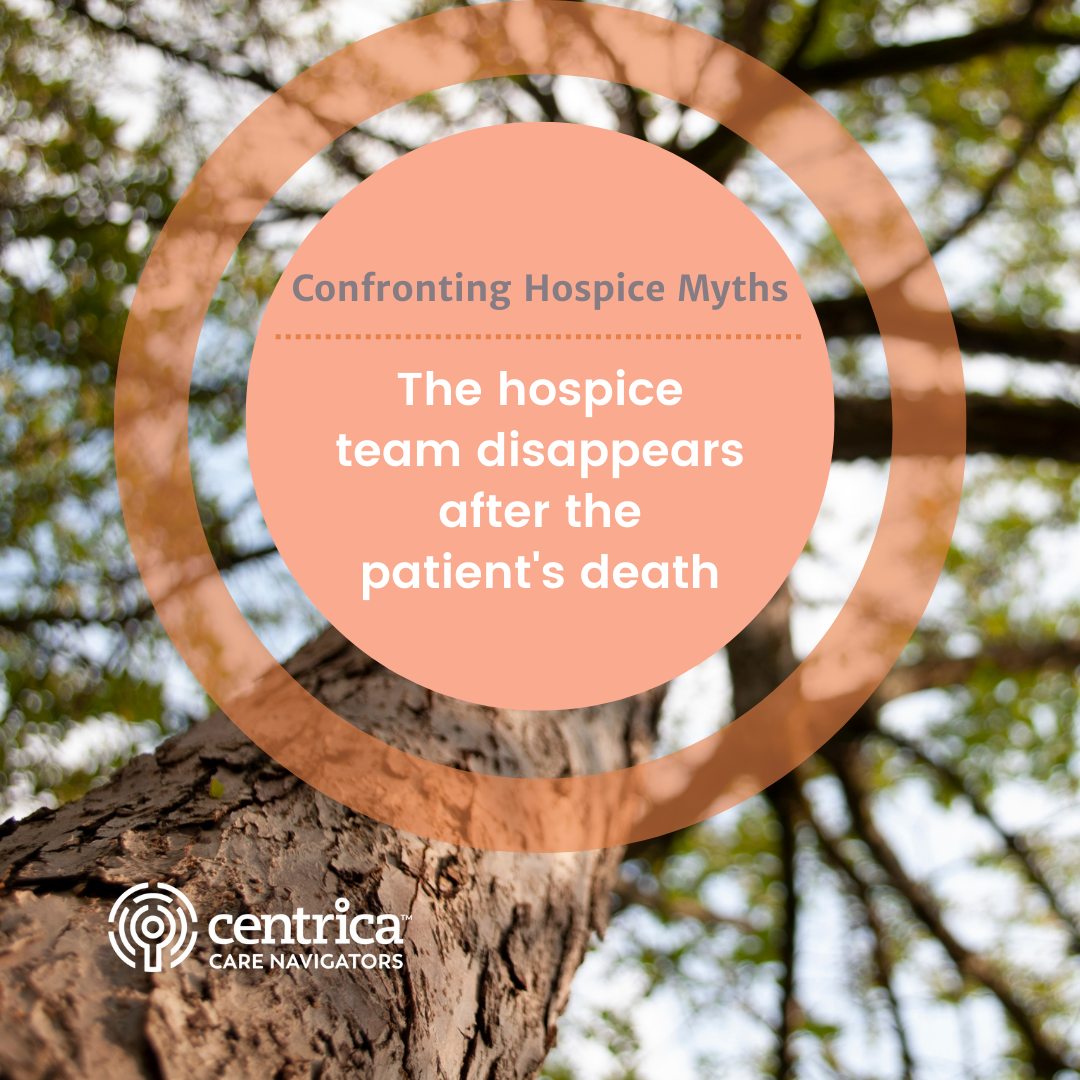End-of-life care doesn’t stop when a patient dies.
In a way, that statement makes no sense; after all, after death there’s no longer a need for medication, a hospital bed, or nurse visits to the patient… but somehow care continues?
Yes, because few people are ever alone in their final days, weeks, and months. They have family and friends who acted as caregivers.
Those people are still living, and moving to the next stage in their own lives. Grief doesn’t follow a schedule, though, and people who have lost a loved one need their own kind of help. Hospice care for a patient might have come to an end, but Centrica Care Navigators still offers assistance for those who were close to the patient.
On your grief journey
Grief Support is a journey, something that happens over a period of time that may be more intense some days and more in the background on other days. If you’re someone who was there to give care to a patient, you were on their journey with them. The Centrica Care Navigators grief support team is now on your grief journey with you.
Grief care is for everyone who has had a loss – even if their loved one wasn’t in hospice with us or receiving care with Centrica Care Navigators.
If you’ve been reading this blog for a while, you’ve read about some of our specialty grief support programs: Journeys for children and teens, and Grief 101 for some local school districts.
We help people in their grieving journey, when they’ve lost someone like a grandparent, sibling, or child. We also work with those who have lost a partner (husband, wife, boyfriend, girlfriend, etc.).
What happens in Grief Support
We have informational materials to help people honor those they have lost. Every person grieves in their own way, and we want to do everything we can to help.
Our grief counselors partnered with more than 2,000 people in 2021. Participants tell us the Grief Support team is working for them:
“I cannot express my gratitude enough for all of your help. I opened each letter from you and each letter has helped me cope; giving me the information has empowered me to cope with the grief. I am still sad, but lucky that I was there for my dad at the end of his life. Thank you for that gift.”
Our grief support goes on for as long as a griever needs it. Many people attend at least a few sessions to see if making new friends and open, honest discussion is something that can help them on their grief journey. We find that many attendees of our grief groups are there for about a year following their loss.
Not just for the patient
Centrica Care Navigators is focused on those who need support for themselves or for a loved one. The person with a life-limiting illness isn’t the only one facing challenges during the time they’re in hospice. Their caregivers, friends, and family are facing a challenge, too.
They may be looking for direction themselves, for compassion and sympathy before a loved one’s death and support in their grief after the death.
They may just need a friendly person to talk to, to help understand what happened and how they can live the rest of their life with that in mind.
When hospice care ends for a patient, service by Centrica Care Navigators continues. Those who were close to the patient won’t see doctors and nurses any longer. But if they want to, they’ll be able to meet with grief counselors.
About Centrica Care Navigators
Centrica Care Navigators, formerly Hospice Care of Southwest Michigan, is a private, nonprofit healthcare agency supporting individuals and caregivers coping with illness, aging, dying, and loss. Founded in 1981, Centrica Care Navigators provides care of the body, mind, and spirit for the residents of Allegan, Barry, Berrien, Branch, Calhoun, Cass, Eaton, Kalamazoo, St. Joseph, and Van Buren counties. Service is available to everyone, even those without insurance coverage. To learn more, visit CentricaCare.org.




